|
|
|
Sort Order |
|
|
|
Items / Page
|
|
|
|
|
|
|
| Srl | Item |
| 1 |
ID:
191354
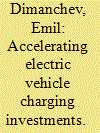

|
|
|
|
|
| Summary/Abstract |
Replacing conventional cars and trucks with battery electric vehicles requires a rapid expansion of fast-charging infrastructure. However, private sector charging infrastructure investments are delayed by unfavorable project economics and uncertainty in future demand. Prior research has addressed the former using standard net present value (NPV) methods, but neglected the latter. To address this gap, this paper introduces a real options model of charging investments, which quantifies the option value of delaying investment under uncertainty. We use this model to assess the implications of optionality in a representative case. Our analysis provides indicative estimates of how investment timing is impacted by alternative policy options: grants, long-term contracts, demand charge re-design, and Zero Emission Vehicle standards. We estimate that if grant subsidies are informed by a traditional NPV analysis, firms would delay investing by more than 5 years. Perhaps surprisingly, even low levels of risk incentivize long delays. We find that policies targeting optionality are substantially more cost-effective than the traditionally used grants. Specifically, we calculate that long-term contracts for differences can trigger immediate investments at a cost 68% lower than grants. A simpler but relatively cost-effective alternative is to introduce a phase-out schedule for grants to discourage investment delays.
|
|
|
|
|
|
|
|
|
|
|
|
|
|
|
|
| 2 |
ID:
097434


|
|
|
|
|
| Publication |
2010.
|
| Summary/Abstract |
The potential for climate catastrophes, represented by 'fat-tailed' distributions on consequences, has attracted much attention recently. To date, however, most integrated assessment models have either been largely deterministic or deterministic with ex-post sensitivity analysis. The conclusions of such analyses are likely to differ from those employing models that accurately characterize society's joint preferences concerning time and risk, especially when distributions are fat-tailed. Using a dynamic stochastic general equilibrium model adapted from Nordhaus's DICE model, we show that failing to accurately account for risk can lead to substantial underestimation of the net benefits of greenhouse gas abatement. A robust finding of our analysis is that a lenient 'policy ramp' emissions reduction strategy is preferable over a more aggressive strategy-such as that advocated by the Stern Review-only if the model does not account for uncertainty about the climate system, the carbon cycle and economic damages, and specifies a consumption discount rate that is counterfactually higher than the historical global weighted average cost of capital of 4.0%. In the debate over uncertainty and time discounting, our results imply that what matters most in climate change assessment is the inclusion and particular specification of uncertainty rather than the precise choice of discount rate.
|
|
|
|
|
|
|
|
|
|
|
|
|
|
|
|
| 3 |
ID:
158203
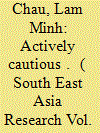

|
|
|
|
|
| Summary/Abstract |
This article uses the case of a northern Vietnamese village to explore how rural households in Asia have negotiated both the opportunities and challenges of marketization and capitalist industrial modernity. I focus on the Vietnamese state’s push to marketize village livelihoods by means of mass establishment of industrial parks comprising largely Foreign Direct Investment factories in the countryside. The state expects young villagers to abandon low-value agricultural livelihoods and treat factory work as their only livelihood strategy and the lifetime warranty of their well-being. Yet while young villagers have been responsive to new opportunities of industrial employment, they have all treated factory work in ways very different from what the state expects: merely as one of their household’s diverse portfolio of livelihood options. I argue that villagers have handled the encounter with industrial modernity in ways rarely documented in the literature on marketization in rural Asia: as ‘actively cautious’ decision-makers, who actively pursue industrial employment to improve their family’s living standards, and carefully maintain a portfolio of livelihood strategies to protect the family’s well-being from the many insecurities of the industrial workplace.
|
|
|
|
|
|
|
|
|
|
|
|
|
|
|
|
| 4 |
ID:
121264


|
|
|
|
|
| Publication |
2013.
|
| Summary/Abstract |
Policies formulated to reduce greenhouse gas (GHG) emissions, such as a low-carbon fuel standard, frequently rely on life-cycle assessment (LCA) to estimate emissions, but LCA results are often highly uncertain. This study develops life-cycle models that quantitatively and qualitatively describe the uncertainty and variability in GHG emissions for both fossil fuels and ethanol and examines mechanisms to reduce those uncertainties in the policy process. Uncertainty regarding emissions from gasoline is non-negligible, with an estimated 90% confidence interval ranging from 84 to 100 g CO2e/MJ. Emissions from biofuels have greater uncertainty. The widths of the 90% confidence intervals for corn and switchgrass ethanol are estimated to be on the order of 100 g CO2e/MJ, and removing emissions from indirect land use change still leaves significant remaining uncertainty. Though an opt-in policy mechanism can reduce some uncertainty by incentivizing producers to self-report fuel production parameters, some important parameters, such as land use change emissions and nitrogen volatilization, cannot be accurately measured and self-reported. Low-carbon fuel policies should explicitly acknowledge, quantify, and incorporate uncertainty in life cycle emissions in order to more effectively achieve emissions reductions. Two complementary ways to incorporate this uncertainty in low carbon fuel policy design are presented.
|
|
|
|
|
|
|
|
|
|
|
|
|
|
|
|
| 5 |
ID:
136189
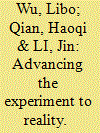

|
|
|
|
|
| Summary/Abstract |
Shanghai, as the most advanced mega city in China, has launched a pilot carbon emission trading scheme (SH-ETS) that is designed to achieve a compromise between the domestic context in Shanghai, and a need for national policy appeal. This paper gives an overview of the latest progress of the SH-ETS and sheds some light on the features of key design components, such as the threshold for inclusion, sector coverage, cap setting, allowance allocation and the Monitoring, Reporting and Verification (MRV) system. Based on a concern that manipulative principles and economic dynamics may lead to uncertainties and ultimately influence the emission reduction effect of the scheme, this paper conducts an evaluation of potential uncertainties, such as those caused by changes in patterns of economic growth, strategic trading activities related to the bankable allowances, carbon leakage risks and insufficient MRV capabilities. To advance the experiment to reality, this paper suggests some changes are made to the pilot, which include adjusting the allowance allocation principles to facilitate change in the domestic energy structure, improving the disclosure of emission data to guarantee information symmetry, gauging the carbon leakage risks to strengthen compliance, and introducing risk management for non-regulated players and derivatives products.
|
|
|
|
|
|
|
|
|
|
|
|
|
|
|
|
| 6 |
ID:
085598
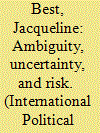

|
|
|
|
|
| Publication |
2008.
|
| Summary/Abstract |
In this paper, I argue that critical international theory could benefit from a broader and deeper conception of the limits of knowledge-that what is needed is more attention to the role of ambiguity in contemporary politics. While not challenging the usefulness of the more prevalent concepts of uncertainty and risk used by scholars applying the frameworks of global governmentality and world risk society, this essay proposes that we understand risk and uncertainty as two specific categories of indeterminacy that have come to preoccupy contemporary neoliberal thinkers and policy-makers, and hence their critics, but which nonetheless tend to downplay the interpretive dimensions of the limits of knowledge. Drawing on Michel Foucault's The Order of Things, as well as the ideas of John Maynard Keynes, I develop an analysis of the role of ambiguity in global governance-as an object of global governance, a tool to be exploited by it, and a limit to its operation. Concluding with the case of international financial governance, this essay suggests that not only will a focus on ambiguity shed light on the historical evolution of global finance, but it also provides us with some clues to the sources of the current subprime financial crisis.
|
|
|
|
|
|
|
|
|
|
|
|
|
|
|
|
| 7 |
ID:
041180
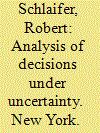

|
|
|
|
|
| Publication |
New York, McGraw-Hill Book Co., 1969.
|
| Description |
xvi, 729p.Hardbound
|
|
|
|
|
|
|
|
|
|
|
|
Copies: C:1/I:0,R:0,Q:0
Circulation
| Accession# | Call# | Current Location | Status | Policy | Location |
| 002779 | 519.542/SCH 002779 | Main | On Shelf | General | |
|
|
|
|
| 8 |
ID:
193178


|
|
|
|
|
| Summary/Abstract |
Andrew W. Marshall founded the discipline and the office of net assessment. As Director, Net Assessment, in the Office of the Secretary of Defense from 1973 to 2015, he developed new analytic perspectives and techniques for analyzing long-term strategic competition and understanding potential shifts in the future security environment. From 1993 to 1999, Marshall gave a series of interviews discussing net assessment – the office and the process. This article highlights three themes from those interviews – Marshall’s basic beliefs about human endeavors, his view on the nature of competition between nations, and his strategy for exerting influence in the U.S. government.
|
|
|
|
|
|
|
|
|
|
|
|
|
|
|
|
| 9 |
ID:
162306
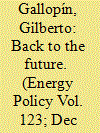

|
|
|
|
|
| Summary/Abstract |
The world system is at an uncertain branch point from which a wide range of possible, qualitatively different, futures could unfold before the end of the Century. Two decades ago, the Global Scenario Group (GSG) published three archetypical sets of scenarios of the future of the planet. These are revisited in the light of the changes and developments that happened since then, plus the emerging new trends, looking for meaningful early warning signals and potential strategic causal nodes that could help steering towards a sustainable global future.
|
|
|
|
|
|
|
|
|
|
|
|
|
|
|
|
| 10 |
ID:
172104
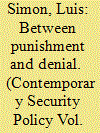

|
|
|
|
|
| Summary/Abstract |
Most debates on U.S. military strategy in the Western Pacific revolve around the question of how to deter China. Advocates of deterrence by punishment believe that the Chinese threat is serious but not critical, because the United States can leverage its global military-technological advantages to preserve a position of regional military primacy. Those in favor of deterrence by denial point to China’s potential and “home advantages,” and argue that the United States should settle for more modest objectives such as preventing Chinese regional military dominance. I argue that the high level of uncertainty around Chinese capabilities and the evolving Sino-American regional military balance have led the United States to adopt a flexible strategy, and embrace distinct–even contradictory–operational concepts to deter Beijing: The United States itself mostly focuses primarily on deterrence by punishment, while actively encouraging and enabling its regional allies to develop deterrence by denial.
|
|
|
|
|
|
|
|
|
|
|
|
|
|
|
|
| 11 |
ID:
092039
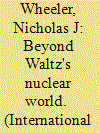

|
|
|
|
|
| Publication |
2009.
|
| Summary/Abstract |
In 1981 Kenneth Waltz published a controversial Adelphi Paper, 'The Spread of Nuclear Weapons: More May Be Better', in which he turned the conventional wisdom on its head by arguing that the spread of nuclear weapons would not be a terrifying prospect. This article rejects the proposition that fear of nuclear destruction can serve as a permanent basis of international order, and argues that securing order depends upon the building of trust between nuclear-armed and arming powers. A key contribution here has been the theory and practice of security communities, which opens up the promise of replacing nuclear threats by a new international politics in which force has been delegitimated as an instrument of state policy. This article discusses the potential for nuclear trust-building through the example of the security community that developed between Argentina and Brazil in the 1980s. Both countries had the potential to develop nuclear weapons by the end of the 1970s, and there were concerns that their rivalry might lead to a regional nuclear arms race. Having explored the factors that promoted trust between Buenos Aires and Brasilia, the article considers the lessons that can be learned for nuclear trust-building elsewhere.
|
|
|
|
|
|
|
|
|
|
|
|
|
|
|
|
| 12 |
ID:
074632
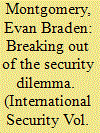

|
|
|
|
|
| Publication |
2006.
|
| Summary/Abstract |
In the debate between offensive and defensive realism, a central issue is whether major powers can overcome the uncertainty that drives the security dilemma. Whereas offensive realists maintain that states cannot know others' motives and intentions, defensive realists argue that states can reveal their preferences by altering their military posture. Defensive realists have, however, presented an incomplete account of the constraints and opportunities associated with military reassurance. To demonstrate its motives, a security-seeking state must take actions that will often increase its vulnerability to potential aggressors. Although offense-defense variables have been invoked to address the constraint of vulnerability, the conditions usually considered most favorable for reassurance-differentiation between offense and defense and an advantage for the latter-make it no easier to achieve. A defensive advantage makes reassurance difªcult by encouraging all states to adopt defensive capabilities and by requiring large concessions to reveal benign motives. Only when offense and defense are differentiated and the balance between them is neutral can states reveal their motives without also endangering their security. These arguments are illustrated with three empirical examples: the Anglo-German naval race, Nikita Khrushchev's troop cuts, and Mikhail Gorbachev's arms limitation and arms control policies.
|
|
|
|
|
|
|
|
|
|
|
|
|
|
|
|
| 13 |
ID:
185701
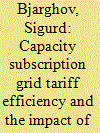

|
|
|
|
|
| Summary/Abstract |
While volume-based grid tariffs have been the norm for residential consumers, capacity-based tariffs will become more relevant with the increasing electrification of society. A further development is capacity subscription, where consumers are financially penalised for exceeding their subscribed capacity, or alternatively their demand is limited to the subscribed level. The penalty or limitation can either be static (always active) or dynamic, meaning that it is only activated when there are active grid constraints. We investigate the cost impact for static and dynamic capacity subscription tariffs, for 84 consumers based on six years of historical load data. We use several approaches for finding the optimal subscription level ex ante. The results show that annual costs remain both stable and similar for most consumers, with a few exceptions for those that have high peak demand. In the case of a physical limitation, it is important to use a stochastic approach for the optimal subscription level to avoid excessive demand limitations. Facing increased peak loads due to electrification, regulators should consider a move to capacity-based tariffs in order to reduce cross-subsidisation between consumers and increase cost reflectivity without impacting the DSO cost recovery.
|
|
|
|
|
|
|
|
|
|
|
|
|
|
|
|
| 14 |
ID:
098598
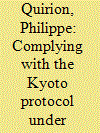

|
|
|
|
|
| Publication |
2010.
|
| Summary/Abstract |
The Kyoto Protocol allocates tradable emission allowances (AAUs) to developed countries, but they are free to choose a set of policy instruments to comply with these targets. We compare two different policy instruments: a tax and purely domestic tradable permits, for the European Union, the US and Japan. Information on abatement costs and international permit price is imperfect and stems from nine global economic models. For a country party to the Protocol, the benefit of emission reduction is that it can sell more or has to buy less AAUs. We show that in this context, permits entail a slightly lower expected cost than a tax for the US and Japan, whereas both instruments yield an almost equal outcome for Europe. Applying Weitzman's framework (Prices vs. quantities, RES, 1974) in this context, we show the importance of the positive correlation between costs and benefits: technology shocks that lead to low abatement costs in one country generally lead to low abatement costs in other countries too, thereby leading to a low international permit price in the true-up period.
|
|
|
|
|
|
|
|
|
|
|
|
|
|
|
|
| 15 |
ID:
105759
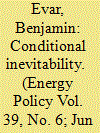

|
|
|
|
|
| Publication |
2011.
|
| Summary/Abstract |
This paper presents findings on expert perceptions of uncertainty in carbon capture and storage (CCS) technology and policy in the UK, through survey data and semi-structured interviews with 19 individual participants. Experts were interviewed in industry, research, and non-governmental organisations (NGOs) in the summer of 2009 and were asked to comment on a range of technical processes as well as policy concerns. The survey revealed that perceptions of the technology conform to a 'certainty trough' with users expressing the lowest level of uncertainty, and outsiders expressing the highest level of uncertainty. The interviews revealed that experts express certitude in the prospects for deploying large-scale CCS technology in the UK, all the while questioning several underlying technical and policy premises that are necessary to ensure this goal.
|
|
|
|
|
|
|
|
|
|
|
|
|
|
|
|
| 16 |
ID:
120394
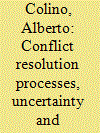

|
|
|
|
|
| Publication |
2013.
|
| Summary/Abstract |
In this article, the economic impact of diminishing levels of uncertainty on investment, as a result of conflict resolution processes, is tested by means of a case study on a European region largely affected by political violence. For this purpose, the response of Basque investment during conflict resolution attempts is used as a natural experiment with which to evaluate the effect of reduced uncertainty on productive investment. Thus, it is found that productive investment in the Basque Country increased considerably when credible peace talks directed towards the end of the conflict were undertaken. Accordingly, when compared with other subsets of comparable Spanish provinces, the truces declared in 1988 and 1998 propelled the growth rate of investment in this region by 21.2 and 25.8 percentage points, respectively. This finding gives an idea on the magnitude of the potential peace dividend to be reaped in the event of an eventual conflict resolution and a complete cessation of political violence in the region.
|
|
|
|
|
|
|
|
|
|
|
|
|
|
|
|
| 17 |
ID:
117592
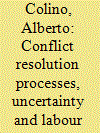

|
|
|
|
|
| Publication |
2012.
|
| Summary/Abstract |
In this article, the impact of diminishing levels of uncertainty on labour demand, as a consequence of conflict resolution processes, is tested by means of a case study of a European region largely affected by political violence. For this purpose, the response of Basque manufacturing employment during conflict resolution attempts is used as a natural experiment with which to evaluate the effect of reduced uncertainty on labour demand. Accordingly, using the difference-in-differences technique, which overcomes some of the shortcomings of previous studies, the relative performance of Basque labour demand during the last two attempts to bring peace to the region is quantified. The longest ceasefire episode ever declared in the region is shown to have triggered a reactivation in labour demand and, therefore, that Basque manufacturing firms responded positively to the reduction in uncertainty by significantly raising their average number of employees. More precisely, it is found that the average number of workers employed by Basque manufacturing firms increased considerably when credible peace talks directed towards the end of the conflict were undertaken. Thus, when compared with their counterparts in similar Spanish provinces, the truce declared in 1998 boosted employment demand in Basque companies by more than 4%, which reflects the economic dividend of peace to be reaped in the event of an eventual conflict resolution and the establishment of a peaceful environment in the region.
|
|
|
|
|
|
|
|
|
|
|
|
|
|
|
|
| 18 |
ID:
151035
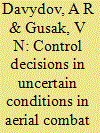

|
|
|
|
|
| Summary/Abstract |
The authors propose an approach to assess the efficiency of surface-to-air missile (SAM) forces units, taking into account the uncertainty level and the risk of making inefficient decisions on combat actions. They review a scheme to choose an alternative in the course of step-by-step decision-making. This approach is based on using information-driven decision support systems.
|
|
|
|
|
|
|
|
|
|
|
|
|
|
|
|
| 19 |
ID:
082796
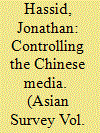

|
|
|
|
|
| Publication |
2008.
|
| Summary/Abstract |
Increasing economic liberalization of the Chinese media has not resulted in proportional political liberalization, and previous explanations for the state's puzzlingly firm grip are inadequate. This article argues that a "regime of uncertainty" is critical toward keeping the Chinese media in line
|
|
|
|
|
|
|
|
|
|
|
|
|
|
|
|
| 20 |
ID:
159270
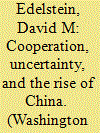

|
|
|
|
|
|
|
|